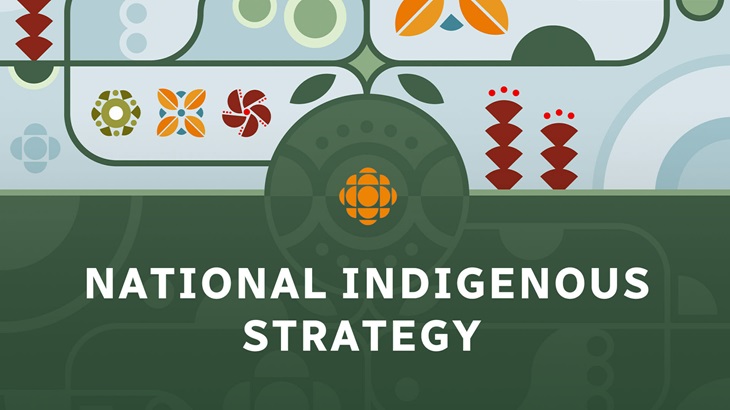
CBC/Radio-Canada on Monday unveiled its first-ever National Indigenous Strategy, called Strengthening Relations, Walking Together, and also announced the creation of a new Indigenous Office at the public broadcaster.
The announcement was made at the Canadian Museum for Human Rights in Winnipeg, located on Treaty 1 Territory.
Strengthening Relations, Walking Together is the public broadcaster’s three-year plan to work with First Nations, Inuit and Métis to better reflect and serve them, says a press release. While developing the strategy, CBC and Radio-Canada met with Indigenous communities, broadcasters, content creators and industry experts across the country to get their input.
CBC/Radio-Canada’s plan creates a framework to actively engage with Indigenous Peoples in four key areas:
- Narratives: Grounding principles of the Truth and Reconciliation Commission in CBC/Radio-Canada’s stories and content development processes, for example by encouraging the use of Indigenous languages.
- Peoples: Growing Indigenous representation at all levels of CBC/Radio-Canada, for example by ensuring equitable access to jobs, leadership positions and professional development opportunities.
- Relationships: Cultivating good relations with Indigenous Peoples, for example by including more Indigenous-owned vendors in CBC/Radio-Canada’s procurement process to support economic reconciliation.
- Truth and Reconciliation: Committing to taking meaningful actions toward reconciliation, for example by initiating a journey towards understanding that will include a study of CBC/Radio-Canada’s past coverage to better understand its reflection and representation of the experiences and events affecting First Nations, Inuit and Métis.
Some of the specific actions CBC/Radio-Canada says it will take include: supporting the efforts of First Nations, Inuit and Métis to reclaim and strengthen Indigenous languages as part of a revitalized news and content strategy launching later this year; renewing its investment in recruitment initiatives such as Pathways, a learning and development program that helps Indigenous storytellers hone their journalism skills; deepening its collaboration with Indigenous creators and key Indigenous organizations such as APTN and the Indigenous Screen Office; and continuing to collaborate with other public service media, such as its commitment to developing an Indigenous podcast initiative with the Australian Broadcasting Corporation.
“Strengthening Relations, Walking Together honours the rich and diverse perspectives of First Nations, Inuit and Métis and reaffirms the national public broadcaster’s commitment to strengthening relationships across this vast land and advancing Truth and Reconciliation,” Catherine Tait, president and CEO of CBC/Radio-Canada, said in the press release. “This strategy provides an important framework to measure our commitment to amplifying the voices of Indigenous creators and communities, as well as our own employees and leaders at CBC/Radio-Canada. While the public broadcaster cannot right the wrongs of the past, this strategy provides us a roadmap for greater learning, collaboration and understanding for the future.”
Robert Doane, senior director of CBC/Radio-Canada’s National Indigenous Strategy, will lead the new Indigenous Office and be responsible for the oversight and implementation of the strategy.
“The Indigenous Office will serve as a resource for internal and external stakeholders to better understand and respect Indigenous cultures, customs, and languages,” the release says. “It will also ensure continual engagement and consultation with Indigenous Peoples and Nations, groups, associations, and other key stakeholders.”
“I’m thrilled to see the launch of this first-ever National Indigenous Strategy,” Doane said. “It’s the culmination of years of work and engagement with First Nations, Inuit and Métis from coast to coast to coast. And it’s more than words on a page — it’s a vibrant promise of ongoing, two-way engagement with Indigenous Peoples. It’s an invitation and an opportunity for everyone, both Indigenous and non-Indigenous, to join us on this journey.”
Image courtesy of CBC/Radio-Canada.


